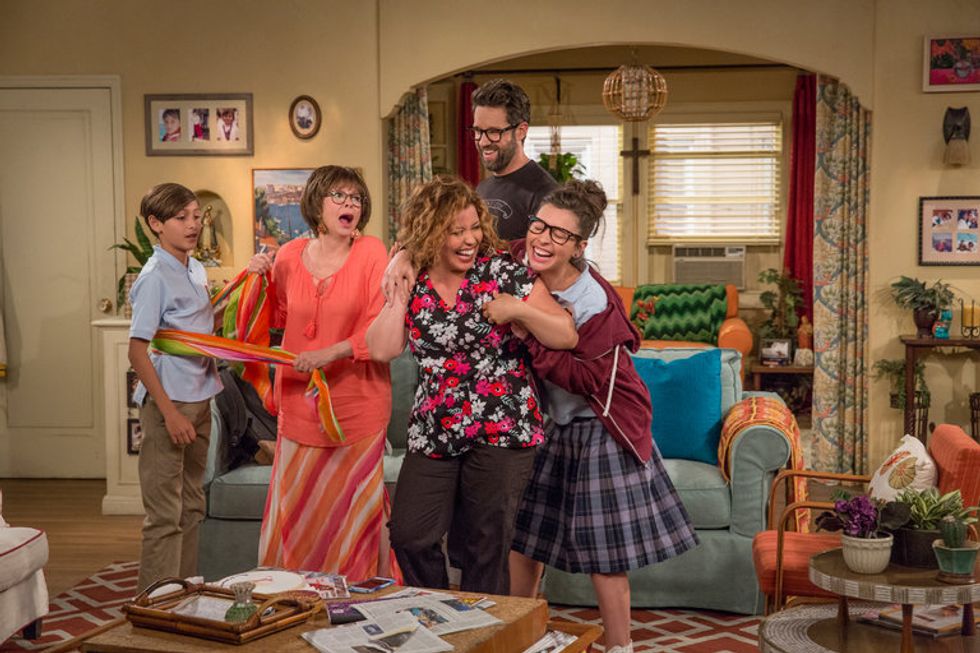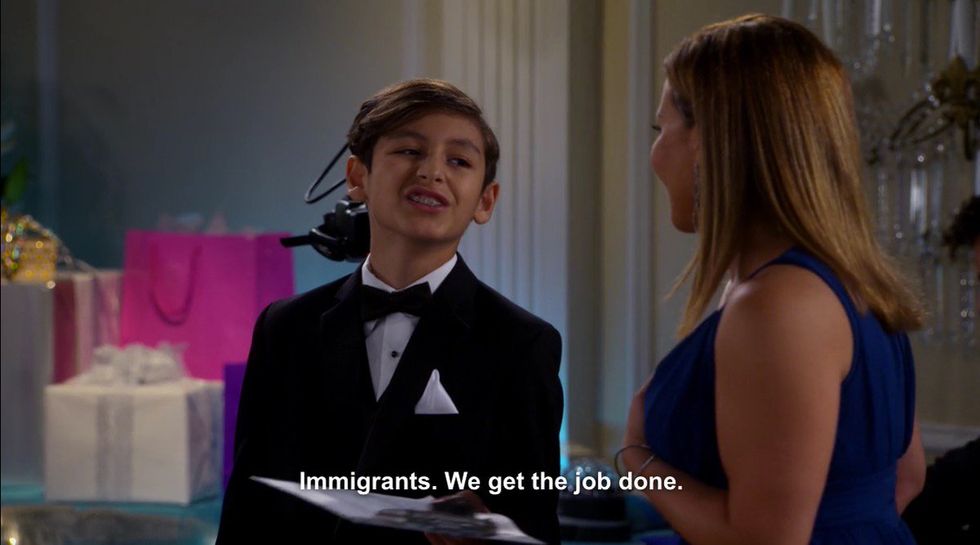The Netflix original series "One Day At A Time" has won over my heart, and I know it will steal yours too. This 2017 remake of the 1975 show follows the lives of the Alvarez family members, consisting of an army veteran and nurse mother, a Cuban-born flamboyant Abuelita (grandmother), a self-proclaimed social justice warrior daughter, and a family jokester of a younger son.
This sit-com has everything and more that you could want from a modern, family-oriented show. Here are 5 reasons why you need to watch "One Day At A Time."
1. There is great racial diversity among secondary characters, and of the main 5 characters, 4 are racial minorities.
I love that the show's main cast is primarily Latinx. Although I can see many people potentially labeling it as a "Latinx show," I think that it is absolutely a step in the right direction. There are people of many different races and ethnicities in the full cast, and I think that it is so important to ensure that television casts are not racially gentrified and white-washed.
This country is not all White - far from it - so, it is time that our media showcases the current American reality more accurately. Also, this family is not the stereotypical Latinx family portrayed on television shows that rigidly follow outdated character tropes. These characters are pretty realistic, granted this is entertaining fiction, but they can easily be related to you and your family. Abuelita is just like my grandmother, except Cuban instead of Spanish. I totally relate to Elena, the daughter. I'm sure you could find similarities between the characters and your family members.
2. It plays on Latinx stereotypes in a funny way, validating the silly ones and often breaking the offensive ones.
I love that it shows Latinx women as intelligent, hard-working, and capable people. Many shows will make Latina characters ultra-traditional, passive, and un-empowered. This aforementioned portrayal sickens me, because in the real world Latinas and Hispanas are strong, intellectual, and absolutely empowered. I can say this because I am an empowered Hispana myself.
There are simple jokes that the show uses to poke fun at Latinx culture, like making Abuelita dance salsa like it's her job, playing around with Abuelita's accent, and making fun of Cuban family over-protectiveness. While this would be offensive in some contexts, it adds an extra layer to the humor because Hispanic families can often relate. The humor is all quite tasteful and appropriate.
3. It talks about realistic immigration situations.
I won't reveal any spoilers, but I think that this show excellently portrays circumstances that are occurring in the United States daily, both with legal and illegal immigration. The show gives you a real look at different situations that immigrant families may go through now, or may have gone through in earlier decades. When it happens to characters that you love, you get a different perspective than that you may see on certain news outlets currently. This is one of the many activist topics that the show touches on.
4. It hits on so many important social issues.
From sharing an LGBTQ+ coming out story, to discussing religion and the stereotypical ultra-Catholicism in Hispanic families, to talking about affirmative action and diversity quotas, to providing a non-shameful sex education narrative, to emphasizing the struggles of military veterans, to showcasing what it is like to have a loved one deal with addiction, this show hits on a lot of important issues that should be discussed throughout media. The fact that this show manages to do that in a humorous way is brilliant, and necessary in order to educate our society. If people are too ignorant to want to read up on and educate themselves on current social issues, you've gotta feed the 411 to them somehow. I am a huge proponent of incorporating educational topics into entertainment and media.
5. You get to learn a bit about Cuban culture.
Between all of the Quinceañera talk, Abuelita dancing to Celia Cruz's music in the mornings, and the little bits of Spanish that are dropped into the dialogues, I think that this show provides an excellent opportunity to learn a bit about Cuban culture, history, music, traditions, and foods - even if it takes place in California, and not Cuba or Miami. Imagine if we learned about a different culture in each show that we watched. If that was the case, I think that racial insensitivity and fear of other cultures would be much less of an issue in our country today. After watching this show, you'll be calling people bobos, ordering ropa vieja for dinner, and listening to Celia while exclaiming Azúcar!
























